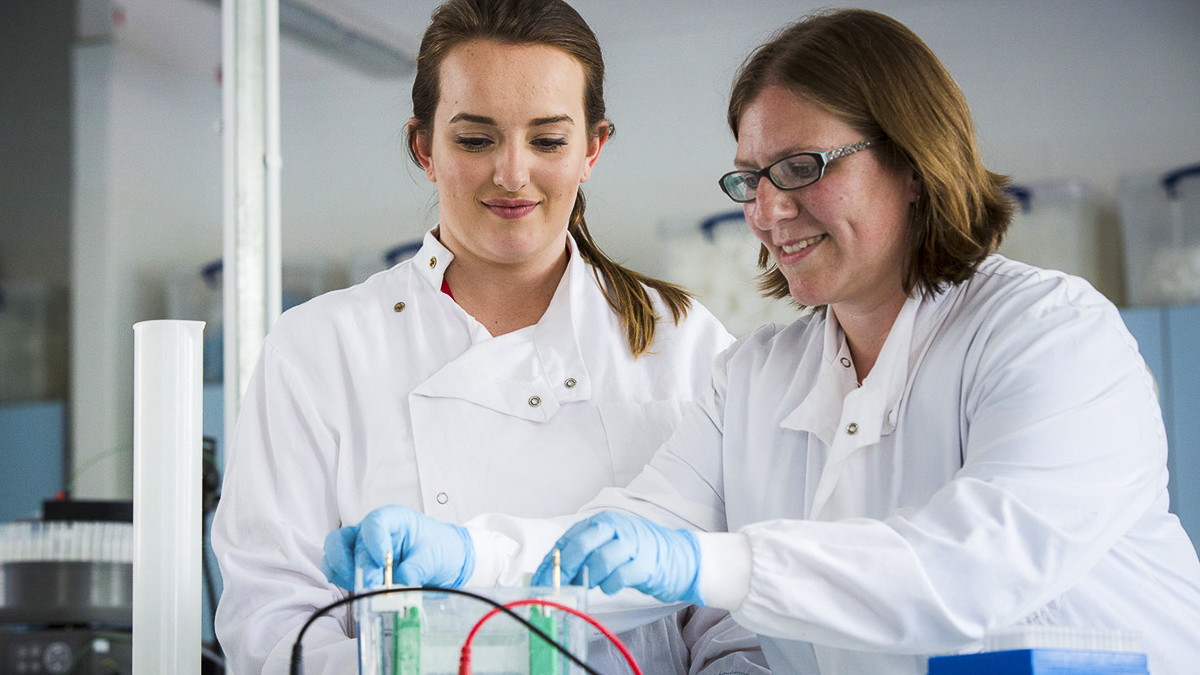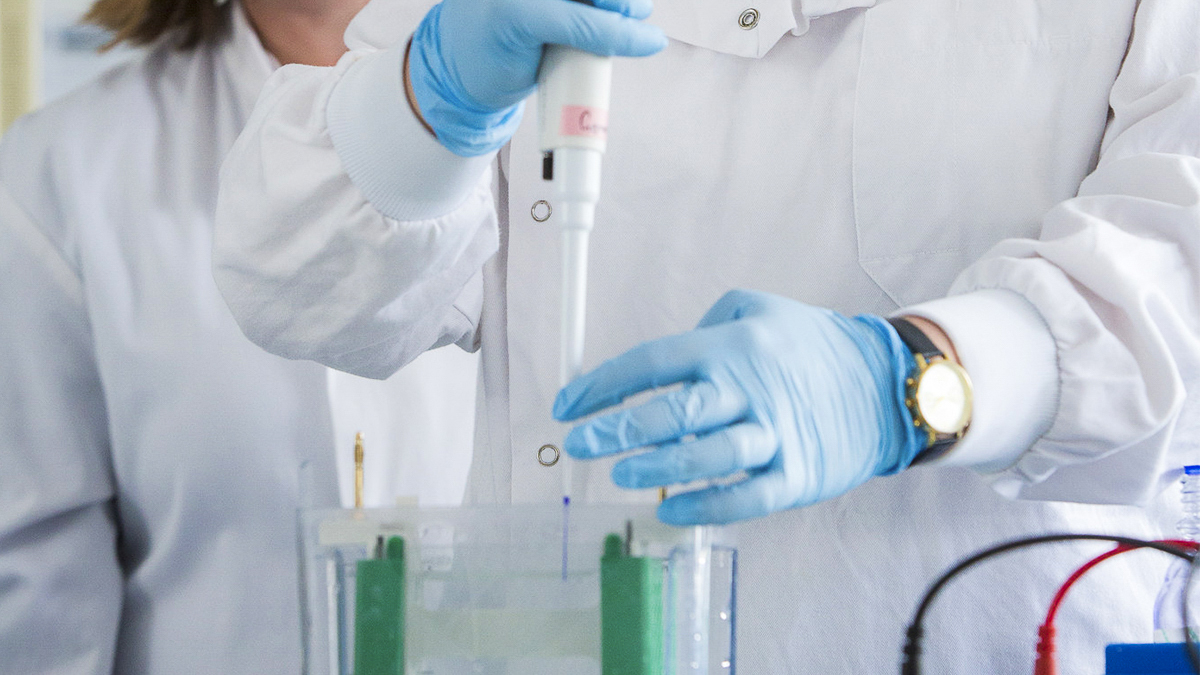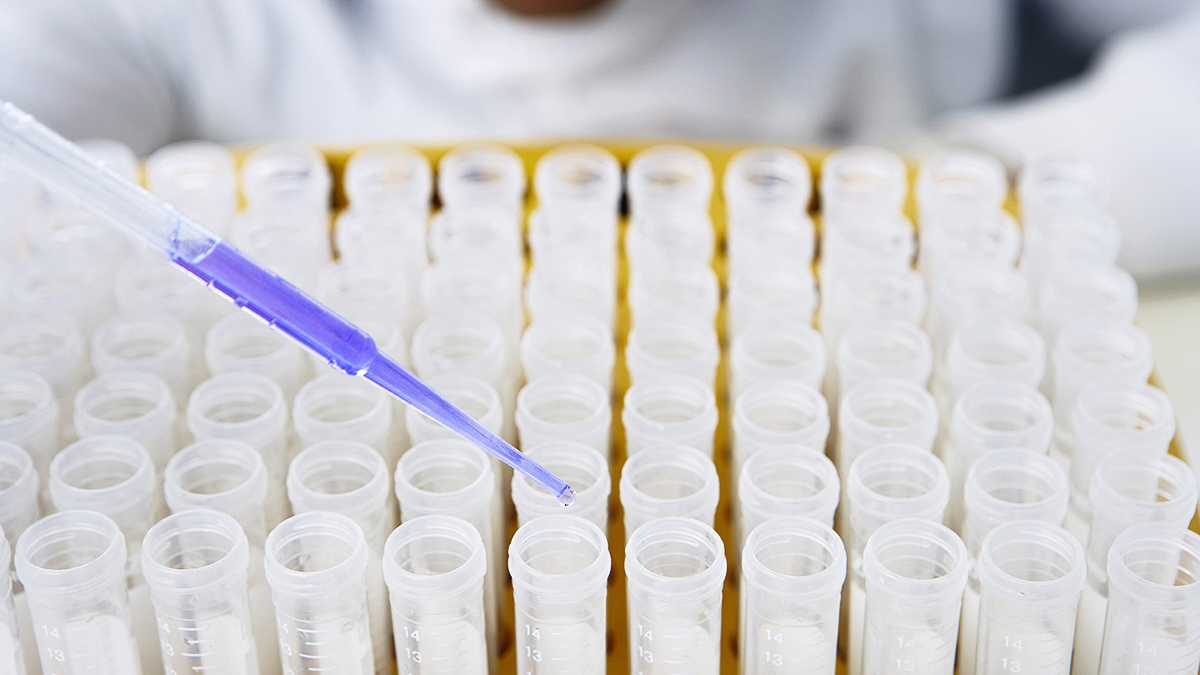Your research project will consist of independent study guided by your supervisor, while your optional modules will mainly involve lectures and tutorials.
You will also receive hands-on training and attend lectures run by the Doctoral and Researcher College.
Master's teaching methods

Guided independent study
You'll receive individual supervision on your research project with regular one-to-one meetings with your supervisor.
You’ll also be trained in the necessary research methods via day-to-day interactions with your supervisor, the research team and technicians.
You’ll also be trained in the necessary research methods via day-to-day interactions with your supervisor, the research team and technicians.
Lectures and tutorials
Taught modules take the form of lectures, and most are followed by small-group tutorials on related material to solidify your learning.
Hands-on training
A major focus of the course is on practical methods and developing your research methods and skills.
Get hands-on training using instrumentation in our Chemical Analysis Facility, which includes nuclear magnetic resonance, X-ray diffraction, mass spectrometry, thermal analysis, electron microscopy and molecular spectroscopy.
Get hands-on training using instrumentation in our Chemical Analysis Facility, which includes nuclear magnetic resonance, X-ray diffraction, mass spectrometry, thermal analysis, electron microscopy and molecular spectroscopy.
Doctoral and Researcher College lectures
You’ll attend lectures on generic research techniques via the Reading Researcher Development Programme organised by the Doctoral and Researcher College.
Practical and safety sessions
The Postgraduate Chemistry Research Methods and Skills module involves practical and safety sessions on chemical database skills.
These include training in written and oral presentations, guidelines for maintaining effective lab records, guidelines for performing research in an ethical manner, and training in safety regulations.
These include training in written and oral presentations, guidelines for maintaining effective lab records, guidelines for performing research in an ethical manner, and training in safety regulations.
Visit Diamond Light Source
As a chemistry student at Reading, you can visit Diamond Light Source, located just 30 minutes from the University.
The synchrotron accelerates electrons up to very high speeds. It produces focused beams of light that are 100 billion times brighter than a hospital X-ray machine or 10 billion times brighter than the sun.
The synchrotron accelerates electrons up to very high speeds. It produces focused beams of light that are 100 billion times brighter than a hospital X-ray machine or 10 billion times brighter than the sun.
Our research areas
Our research-active academic staff are available to supervise research projects in the following areas:
Industrial collaboration is one of our key strengths, and our research groups have worked on projects with many major organisations.
Learn more about our research
- biomedical, molecular and analytical chemistry – the development of novel compounds and technologies for current and future challenges in biomedicine, health, prosperity, and the environment
- materials and interfaces for the future – surface chemistry and catalysis, solid-state computational chemistry, and property modelling together with materials chemistry
- soft matter – macromolecular chemistry, physical organic chemistry and surface chemistry.
Industrial collaboration is one of our key strengths, and our research groups have worked on projects with many major organisations.
Learn more about our research

Optional modules
You'll select two lecture courses that complement your one-year research project.
Optional modules include:
- Advanced Organic Chemistry
- Advanced Topics in Physical Chemistry
- Functional Inorganic Materials
- Chemistry in Industry and Professional Skills
- Current Topics in Chemical Research.
Visit our course page to learn more about modules

